My wildest dream is that you never abandon yourself
We need more software engineers who are more than software engineers.
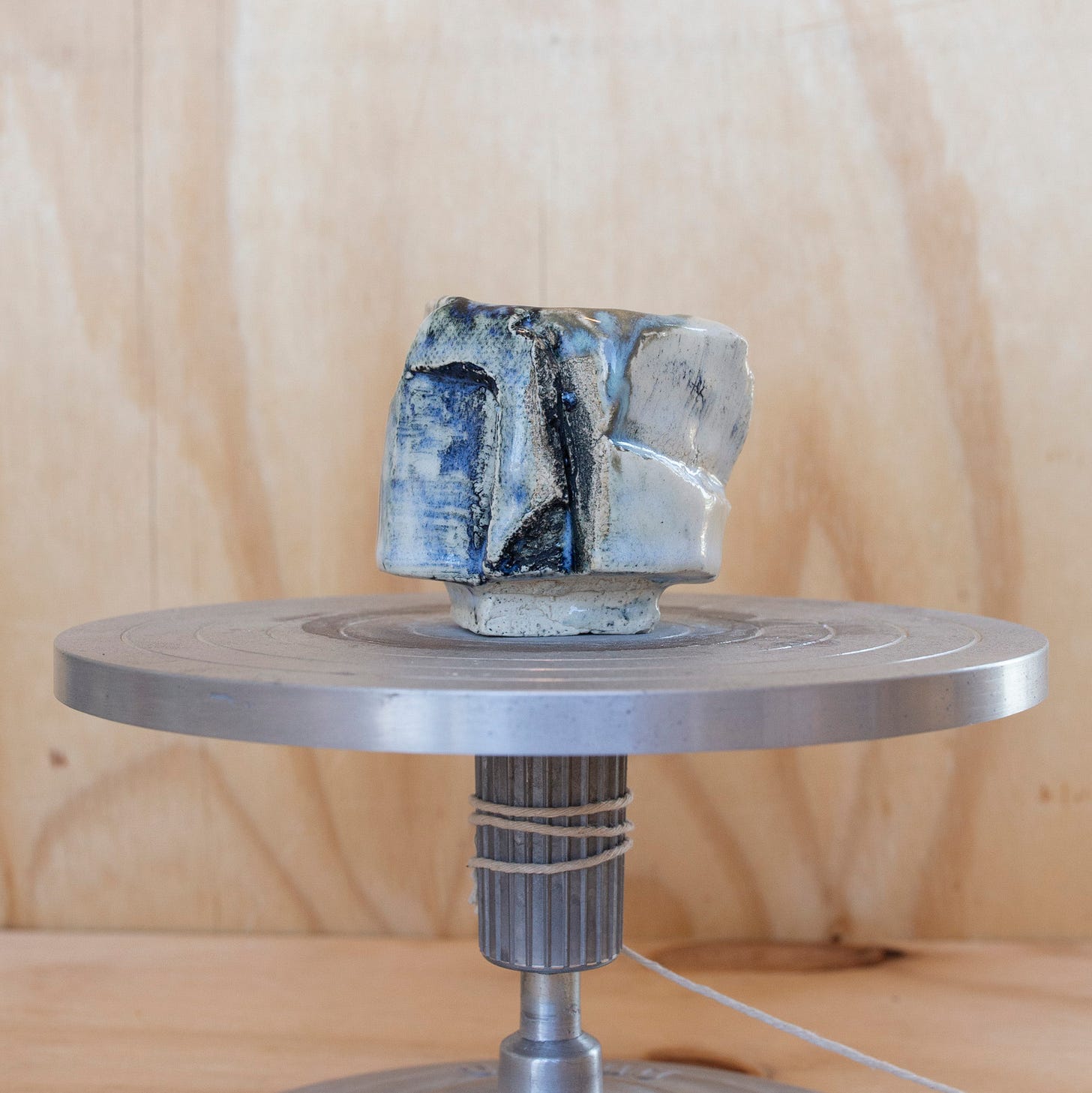
The Abandonment
I abandoned my art practice for two years. The second half of 2018 was dedicated to learning how to code, all of 2019 was dedicated to teaching others how to code, and it wasn’t until the middle of 2020 that I slowly started to return back to my art practice. In the midst of a pandemic, an uprising, and the mounting evidence of our collective climate crisis, the grief was a quiet but sharp reminder that I could not go on like this. I’m familiar with the Backwater Blues1 — I’ve butterfly kicked inside its current, sometimes I float, other times I surf. I’ve even learned how to swim into the deep. When grief is the air you learn how to breathe underwater2, but this time I was drowning.
Water entered my lungs, an invitation to action. I began to take stock of my daily practices of rememberance and realized I had abandoned most of them. Walks alongside trees were infrequent, meditation sessions were minimal, soaks in the bathtub were few and far between, and maybe most significantly: I hadn’t made anything with my hands, outside of a meal, for two years. I remembered my craft practice was my self-contained underwater breathing apparatus. By the end of 2020 I picked up clay and the breathwork resumed. Mud in hand, I began carving my rage, my grief, my longing, my joy into vessels that could carry water. It was through clay I remembered interdisciplinary practice is breathwork.
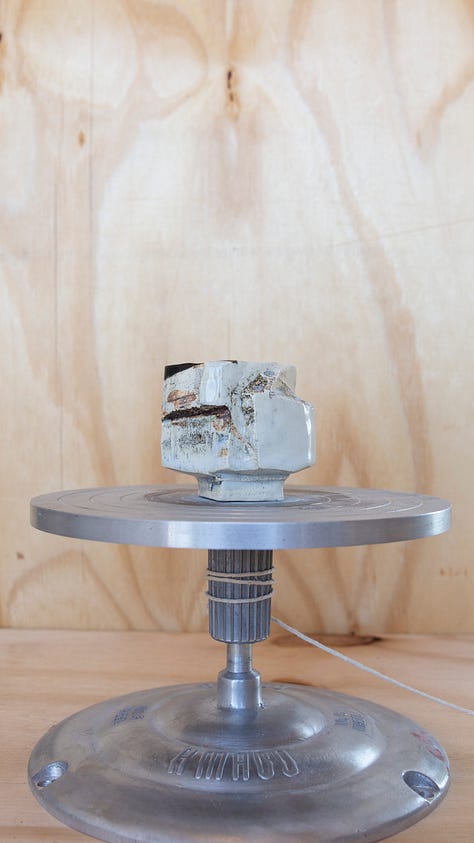
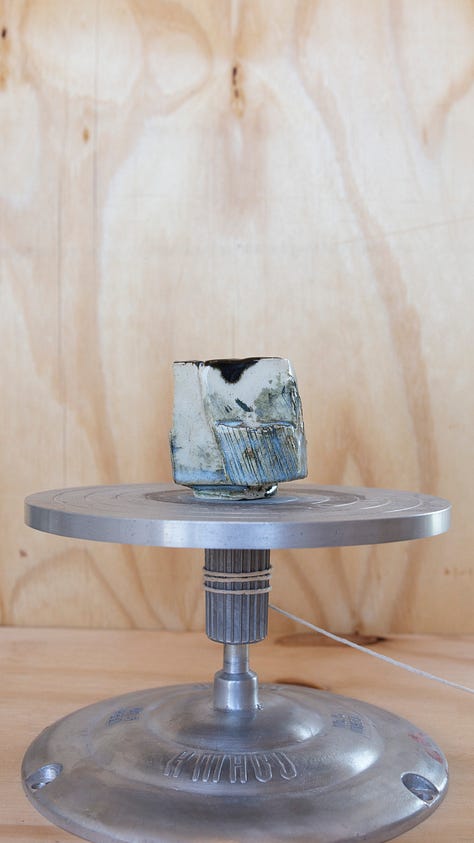
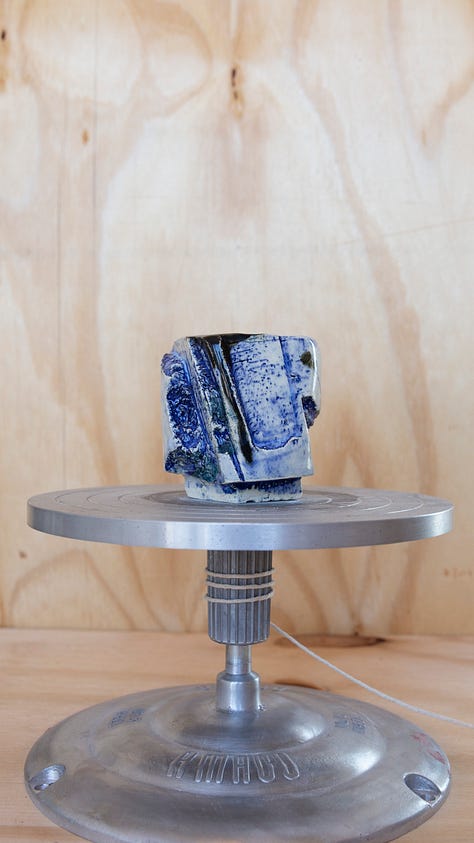

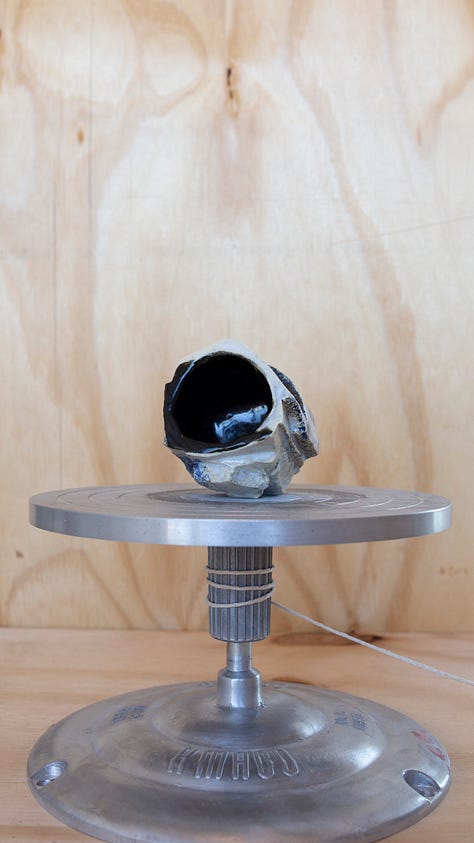
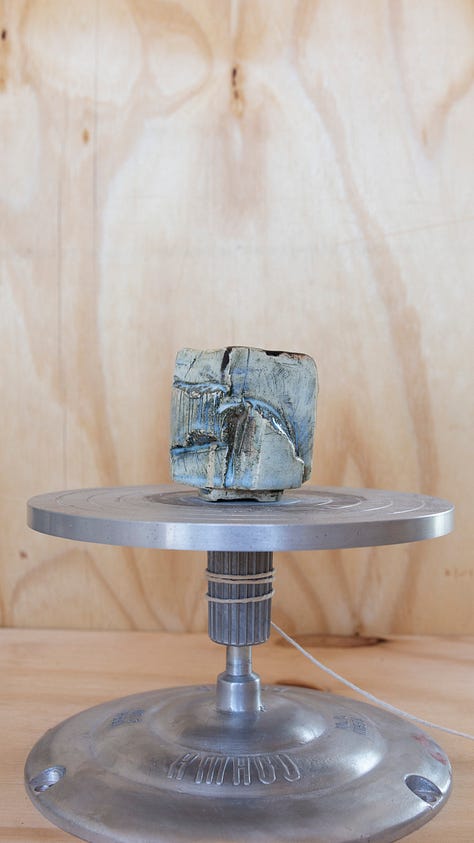
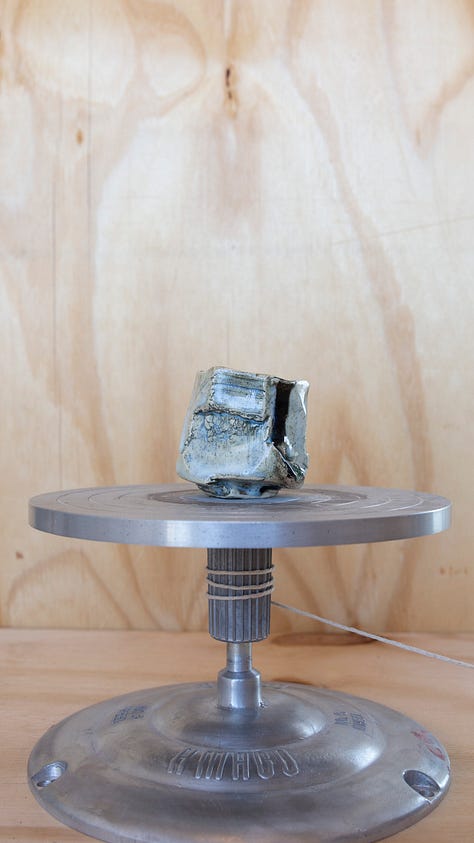
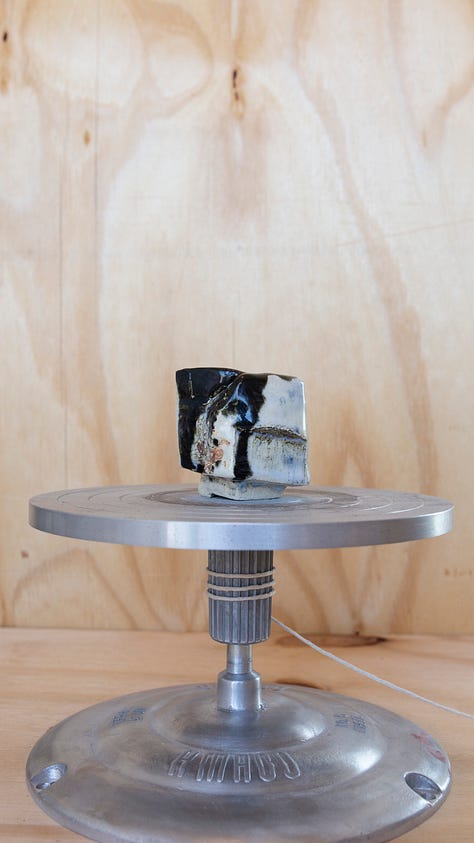
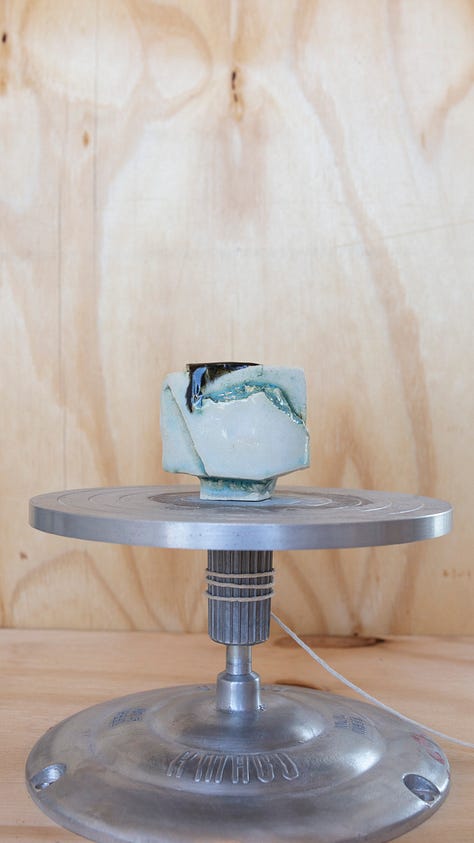
Interdisciplinary Practice As Worlding
“Within black studies and anti-colonial studies, one can observe an ongoing method of gathering multifariously textured tales, narratives, fictions, whispers, songs, grooves; these narratives push up against and subvert prevailing colonial and imperial knowledge systems by centering and legitimising other (black) ways of knowing. What is meaningful, then, are the ways in which black people are interdisciplinary actors, continually entangling and disentangling varying narratives and tempos and hues that, together, invent and reinvent knowledge.”
— Katherine McKittrick3
When I started carving wet earth as a way to return to breath back in 2020, I had no clue I was sculpting a new world, an alternate mode of being, an opening. In 2019 the name Seeda came to me, in 2020 the ceramic vessels came out of me, and in 2021 the world of Cykofa wrapped itself around me. It was through interdisciplinary practice that the methodological premise of Cykofa emerged, a story told through the narration of Seeda’s journal entries and algorithmically woven data as the voice of an ancient bald cypress tree. Through combining code and clay I sculpted my way into a parallel universe where cornrows are cryptography keys, data farms are data forests, the weaving loom is a computer, a cloth is a document, and chain link fencing from demolished prisons are used as architectural membrane woven with plant life. Seeda School is completely informed by this speculative universe born of code and clay.

My Wildest Dream
My wildest dream is that you never completely abandon yourself to learn how to code. The word “completely" is key here. Perhaps there is no return without abandonment. Maybe we must forget in order to remember. It is possible I needed to flail inside the water before learning how to swim. But I’ve seen a familiar pattern in so many of my students, before they learn to code they are writers, community organizers, hair braiders, chefs, ceramists, musicians, healers, and more. They pick up the skill of coding to take some of the financial pressure off of their artwork — their breathwork — with the vision of a software engineering salary funding their creative practice. Only problem is sometimes they never return. I had a similar trajectory with the vision that a software engineering salary could fund my art practice while providing me employment benefits to thrive. My wildest dream is that you never completely abandon yourself to learn how to code. If you must forget, please remember to return. We need more software engineers who are more than software engineers to code a different story. To breathe the world we need into being.
Listen to the Latest Soft, Where? Podcast Episode
Book A Free 1:1 Consultation
If you want to learn how to code through a black feminist lens please book some time on my calendar. We will discuss your coding goals and find out if Seeda School coaching is aligned with your needs, values, and vision for your coding practice. Click here to learn more about Seeda School coaching.
The song "Backwater Blues" is a blues and jazz standard written by Bessie Smith. Smith (on vocal with James P. Johnson on piano) recorded it as "Back-water Blues" on February 17, 1927, in New York City. I wrote this newsletter before turning on the radio and hearing about the deadly flooding and mud slides in California. The road to the world we need is paved with interdisciplinary practice inventing new ways of being, knowing, and holding eachother during our collective climate crisis in ways that this current social system is incapable of.
Undrowned: Black Feminist Lessons from Marine Mammals by Alexis Pauline Gumbs was published by AK Press in 2020 and it’s an essential text in my library. I pick it up whenever I need to remember how to return.
Dear April: The Aesthetics of Black Miscellanea by Katherine McKittrick, The 2021 Antipode AAG Lecture





